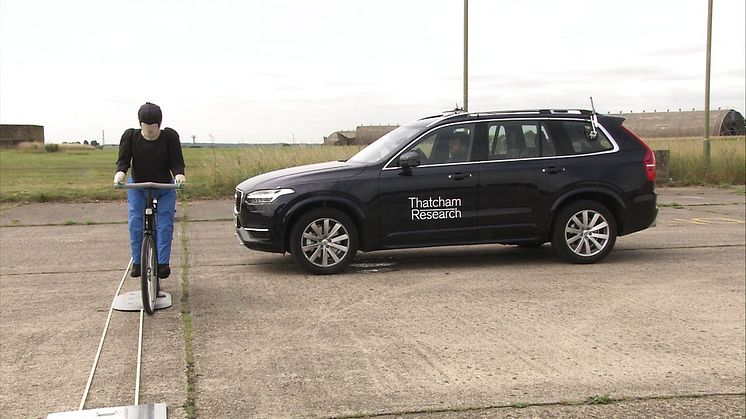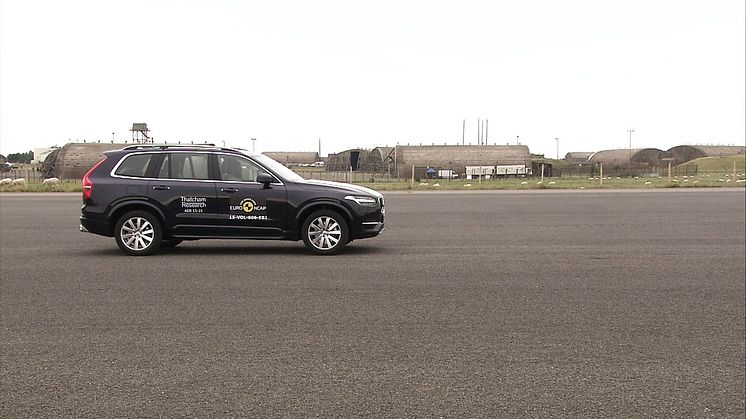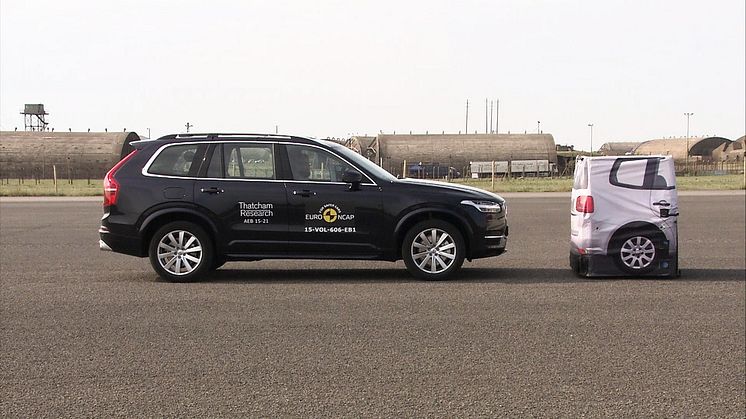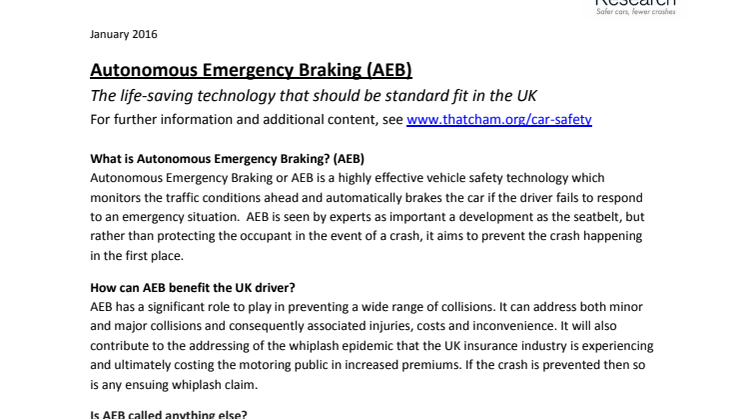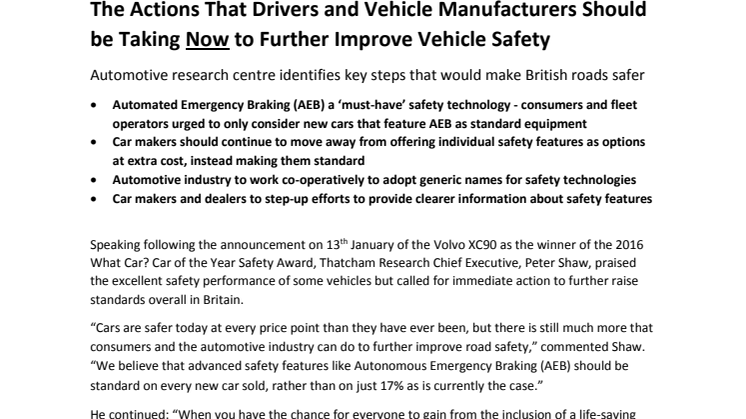Press release -
Key Steps to Improving Vehicle Safety
Automotive research centre identifies key steps that would make British roads safer
- Autonomous Emergency Braking (AEB) a ‘must-have’ safety technology - consumers and fleet operators urged to only consider new cars that feature AEB as standard equipment
- Car makers should continue to move away from offering individual safety features as options at extra cost, instead making them standard
- Automotive industry to work co-operatively to adopt generic names for safety technologies
- Car makers and dealers to step-up efforts to provide clearer information about safety features
Speaking following the announcement on 13th January of the Volvo XC90 as the winner of the 2016 What Car? Car of the Year Safety Award, Thatcham Research Chief Executive, Peter Shaw, praised the excellent safety performance of some vehicles but called for immediate action to further raise standards overall in Britain.
“Cars are safer today at every price point than they have ever been, but there is still much more that consumers and the automotive industry can do to further improve road safety,” commented Shaw. “We believe that advanced safety features like Autonomous Emergency Braking (AEB) should be standard on every new car sold, rather than on just 17% as is currently the case.”
He continued: “When you have the chance for everyone to gain from the inclusion of a life-saving technology that has been shown in studies to reduce the likelihood of a front-to-rear crash by almost 40%1, you simply cannot afford to miss the opportunity.”
In conjunction with its call for AEB to be standard on all new cars, Thatcham Research believes that further action is needed in a number of related areas to ensure that Britain sees the maximum benefit from safety technologies available now, but not fully embraced:
- Consumers and fleet operators should only consider new cars fitted with AEB as standard.
- Car makers should continue to move away from offering individual safety features as options at extra cost, instead making them standard. With research showing that 82% of drivers2 think safety features currently offered as optional extras on a new car should be included as standard, consumers are giving manufacturers a clear mandate to do this.
- The automotive industry should work co-operatively to agree and introduce generic names for safety technologies in place of a variety of different marketing-led names currently used to describe what are essentially the same features. Thatcham favours Automatic Braking as the simplest term for AEB, replacing the likes of City Safety, Active City Stop and City Emergency Braking, an action for which there is strong consumer support: when questioned, 95% of drivers2 said that vehicle manufacturers should adopt a generic name for AEB.
- To help consumers make informed decisions, car makers and dealers should strive to provide simpler, clearer information on safety features, using website and dealership-based assets to better explain the technologies and why they are important. With more than three quarters of drivers saying in a recent survey2 that they used either car manufacturers or dealers as a source of information when considering the safety of their car, this will bring immediate benefits.
“People choosing only AEB-equipped new cars now will not only make our roads safer, it will also send a clear message to car makers about the importance of – and demand for – this technology,” commented Peter Shaw. “We also believe that industry-wide adoption of simple, generic names for individual safety features in place of the many different descriptions currently used by car makers would significantly improve consumer awareness and understanding of live-saving technologies.”
Shaw continued: “Car makers are pioneering new technologies and have worked hard to make a widening range of safety features available on new vehicles and give consumers a base level of knowledge about the technologies. But there is much more that can be done - this is very much a case of vehicle manufacturers helping people to help themselves, by ensuring that the cars they are buying are as safe as they possibly can be.”
ENDS
Editors’ notes:
1 2015 study by Euro NCAP and Australia NCAP.
2 Survey conducted for Direct Line Group and Thatcham Research December 2015/January 2016 by Opinium. 2,005 UK adults interviewed online; sample weighted to provide a nationally representative audience.
Related links
Topics
- Transport
Categories
- vehicle safety
- autonomy & technology
The Motor Insurance Repair Research Centre, or 'Thatcham Research' as it is widely known, was formed in 1969 by British insurers. The centre is the independent voice of automotive safety & repair, advising motorists, insurers and vehicle manufacturers to help reduce accident frequency, severity and costs.
As well as its world leading crash and track research, Thatcham tests and accredits crash repair parts, vehicle repair technicians, and a number of other products and services within the collision repair industry for insurers, motor manufacturers, equipment manufacturers and suppliers.
A founder member of the international Research Council for Automobile Repairs (RCAR), Thatcham has also been a member of the European New Car Assessment Programme (Euro NCAP) since 2004.

